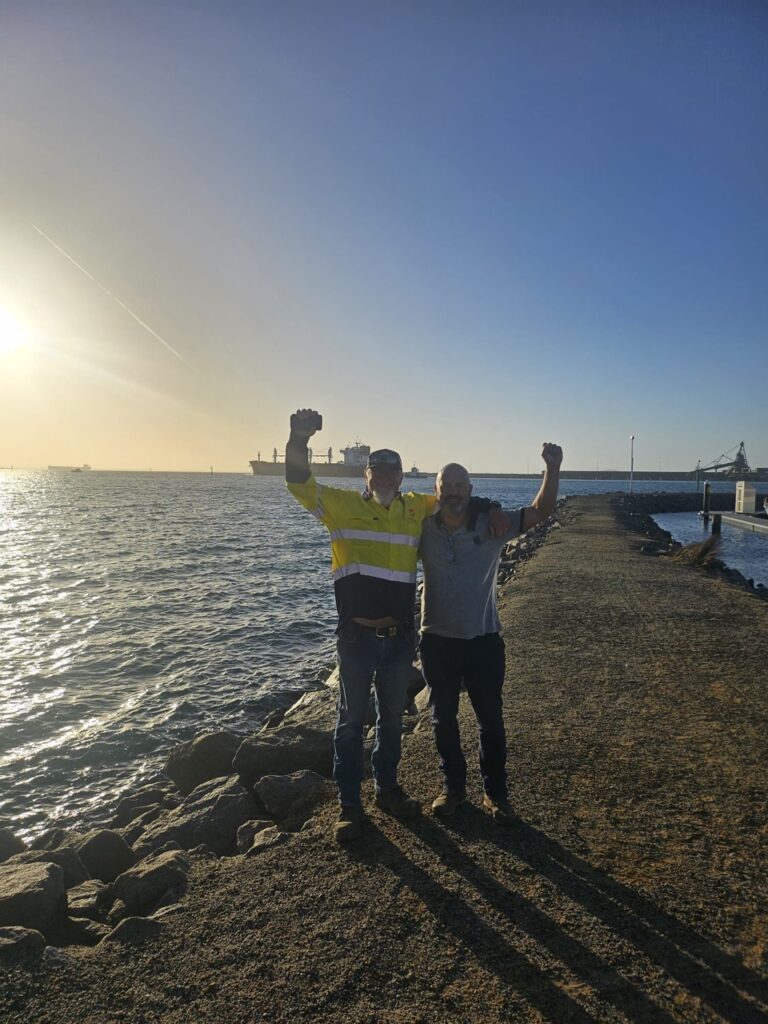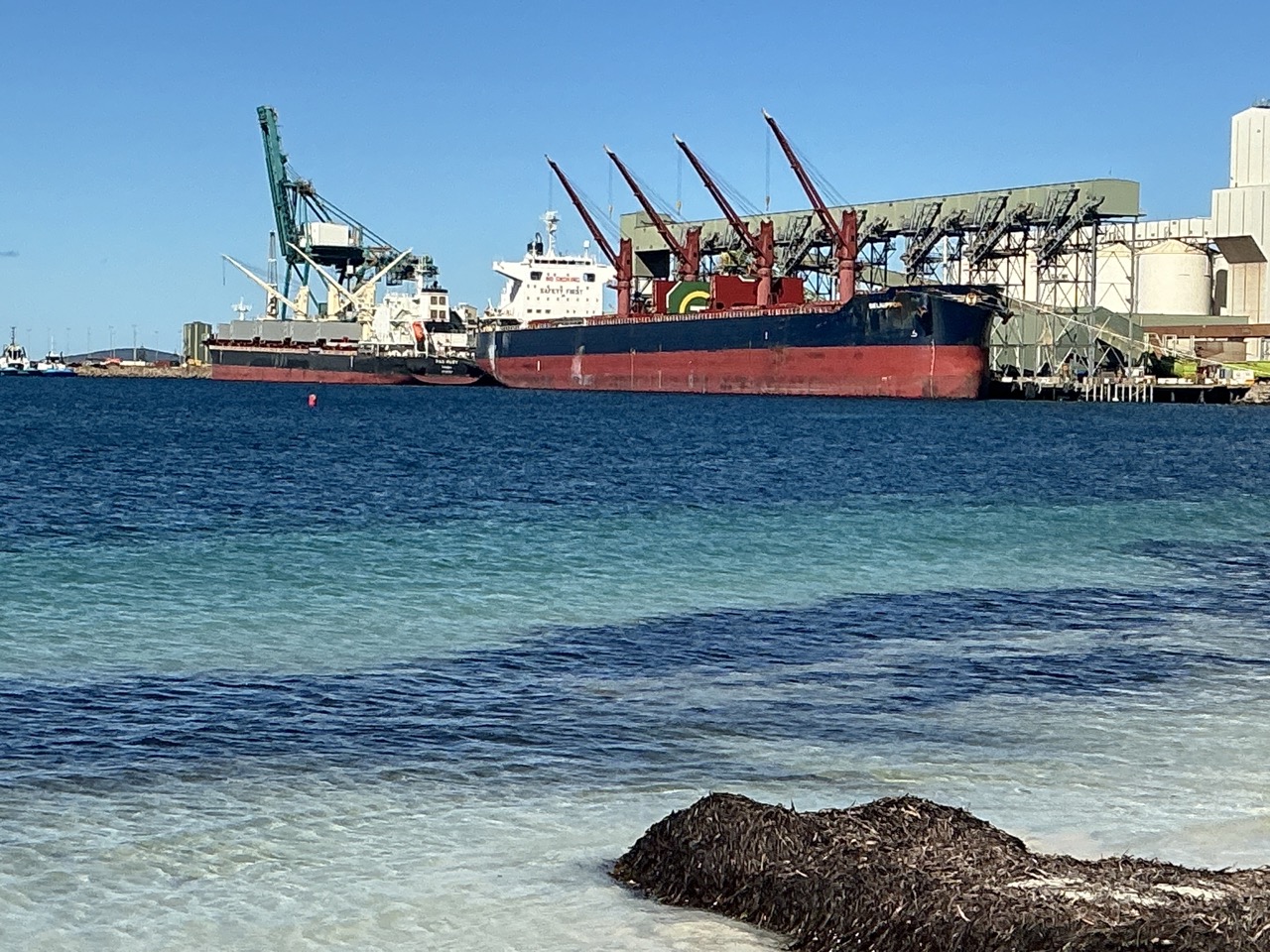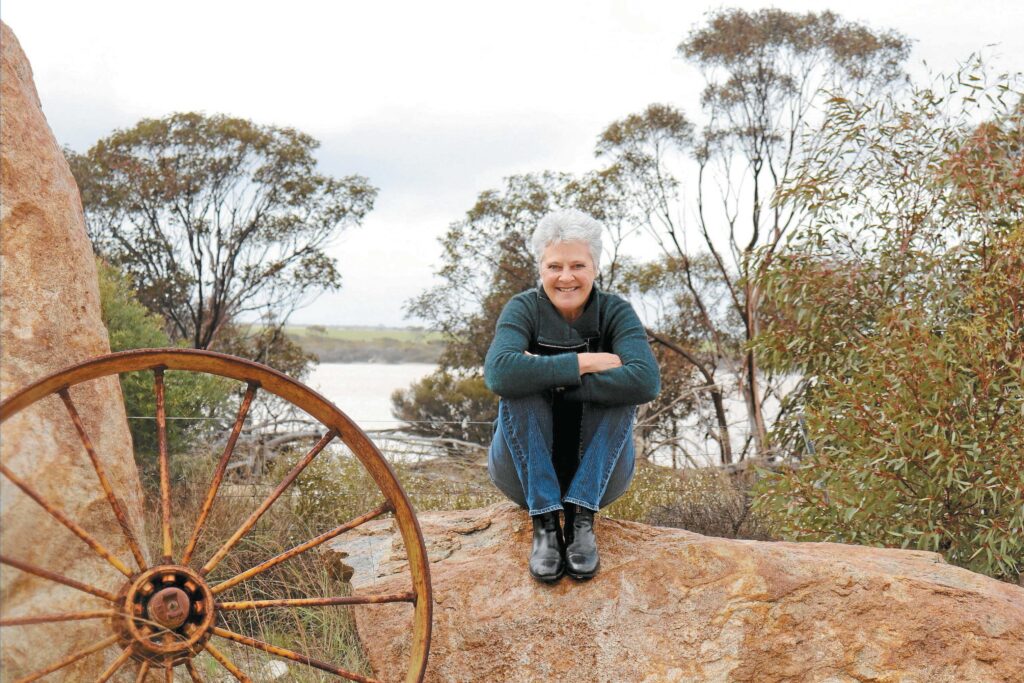The Belnippon in Esperance Port on Thursday May 8. Photo: Liz Gibbes.
An Esperance company that sells biomass for renewable energy has completed its first shipment to France, with another being readied in port last week.
The shipments mark the culmination of two years of work establishing Renewable.bio and building its operations.
Director and Chief Operating Officer Brian Scott said: “in the first phase of our business we have harvested and given farmers value for fire-affected blue gum plantations, around 100,000 tonnes to date, that have no other market”.
Mr Scott said the main harvest site so far had been the Smallwood’s Gerbryn Tree Farm on Merivale Rd.

“The biomass we have produced is to be used for bioenergy production in Europe, in the form of electricity production in converted, formerly coal-fired, power stations,” he said.
The Australian Renewable Energy Agency (AREA) defines biomass as organic matter derived from forestry, agriculture or waste streams available on a renewable basis.
Biomass can be converted to bioenergy using several methods that include, among others, combustion, gasification and fermentation, depending on the type of raw material, the size of the project and the type of energy being produced.
Conversion processes may also produce useful byproducts, such as renewable bitumen and biomass-based concrete.
Mr Scott said fire-affected plantations could not be harvested for the pulp and paper market.
“It is likely they would otherwise be pulled over and burned so that the land can be put to other uses,” he said.
The company has faced a few hurdles to get set up.
As one of the first Australian companies to hold a certification from the Sustainable Biomass Program (SBP), he said auditors had to come from Malaysia to assess its operations as there were none currently qualified in Australia.
Also, a delay in a customer taking delivery “was over a year and that presented some significant challenges,” Mr Scott said.
“Being able to work through those challenges showed the real quality of our crew and the ‘can do’ way Esperance can deliver.”
The company’s first export vessel, MV Anafi, arrived in France on May 8 having been loaded at Esperance port at the end of March.

The day Anafi arrived in France, the loading of the second export vessel, the Belnippon, began in Esperance.
Mr Scott said it marked a significant step in the company’s journey.
“We have been operating in Esperance for over two years, with 10 locally based employees and engaging a range of contractors,” he said.
“Our business aim is to make Esperance a leader in the increased role for organic material for bioenergy and other products.
“We are here for the long term as part of a circular economy.”
Mr Scott said the next phase around mid-2025 was to get more trees in the ground and to start using resources to value-add in Esperance, making products that would benefit the local community.
He said he anticipated the benefits would come through investment on the ground, new and skilled jobs, new economic activity, and also making products here that are used locally, in particular, for agriculture.
“In the immediate future… we want to deploy a second harvesting system and team in the near future,” and “to expand and develop the available biomass resources —accessing slash, stumps and residues and looking for opportunities for more trees,” he said.
The Western Australian Department of Industry and Regional Development states producers can generate income through selling agricultural waste to bioenergy producers as biomass.
In WA, the cropping industry produces the largest amount of waste biomass, followed by dairy, plantation forestry, and other industries, according to the Department.
Mr Scott said the company was keen to work with other local businesses to use biomass for value-adding here rather than exporting.
“In the longer term, we believe the sky’s the limit with Esperance’s well-known resourcefulness and established farming credentials ready to feed into a range of bioenergy products that we are aiming to produce,” he said.
Mr Scott said the company wished to “put investment on the ground in Esperance… circularity and maximisation are important themes for us.”




